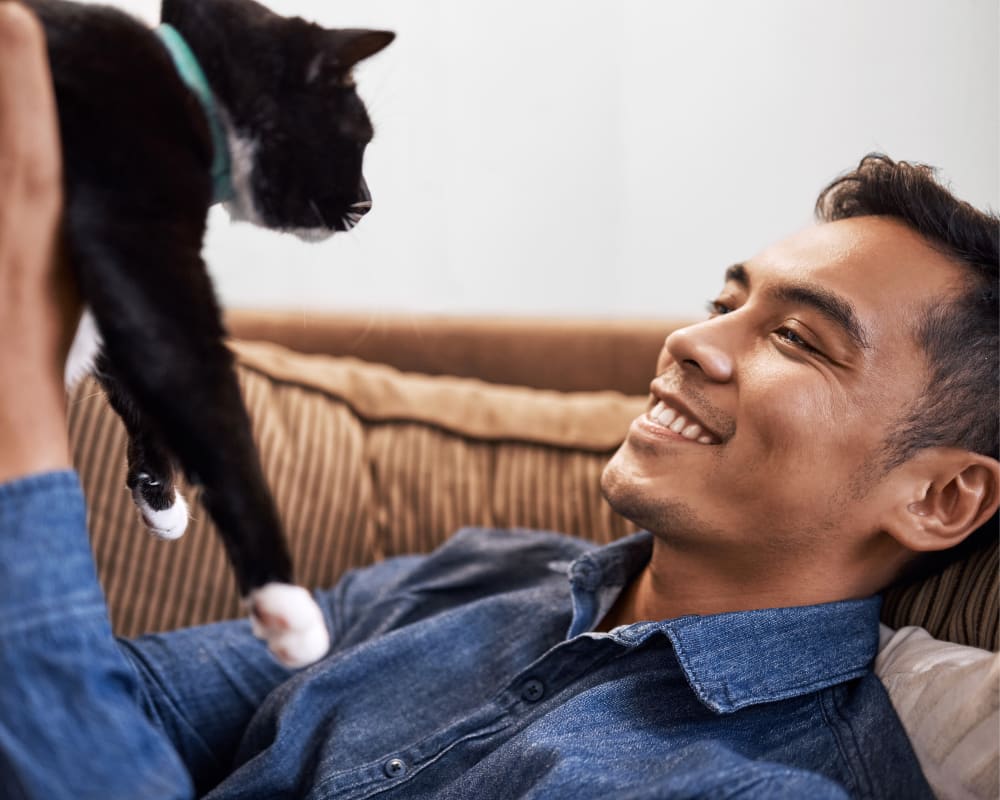Spaying & Neutering
Keeping the Pet Population Healthy & Protected
Neutering is a procedure in which the testicles are removed from male pets. Spaying removes a female pet's reproductive organs. Spaying and neutering your dog or cat prevents the birth of unwanted kittens and puppies. This is important as animal shelters across the country are already beyond capacity.
Along with managing the number of stray and surrendered pets, these surgeries can help prevent serious and potentially life-threatening medical conditions like cancer. In addition to the health benefits, spaying and neutering may also assist with reducing behavioural issues like aggression.
These surgeries are a standard part of preventive care for pets, helping them live healthier, more content lives.

Microchipping to Help Bring Lost Pets Home
At Barrhaven Veterinary Hospital, we offer microchipping, which is often done during routine spay and neuters.
A microchip is a safe, simple form of identification implanted in the area between your cat or dog's shoulders. This can be used to reunite you and your pet if they become lost. This device is as small as a grain of rice and contains a unique identification number that can be read using a special scanner at a veterinary clinic or animal shelter.
When to Spay or Neuter Your Cat or Dog
No one understands your furry friend's health better than your veterinarian. Although we provide general spay and neuter age guidelines below, it is always best to consult your veterinarian.
Cats: Many veterinarians recommend spaying cats when they are around six months old. This allows them to reach their relative adult size and ensures they can safely metabolize anesthetic agents.
Dogs: Like cats, it is often recommended that dogs be spayed at six months old. Some veterinarians have concluded that for some breeds, it is better to wait until the dog reaches sexual maturity before performing these reproductive surgeries, although this varies between each pet.
FAQs About Spaying & Neutering
Are you considering spaying or neutering your pet but still have questions? To learn more about spaying and neutering, read the answers to our list of frequently asked questions below.
-
How long will it take for my pet to recover from surgery?
Spaying and neutering surgeries are often performed as outpatient procedures, allowing pets to return home in the evening once they are alert and showing no signs of potential issues.
You will need to keep your pet from running, jumping and playing for at least 10 days following surgery, and a protective collar may need to be worn to prevent it from licking the incision.
It is also likely that you will need to bring your pet in for a follow-up appointment.
-
Will my pet feel anything during the procedure?
No, our veterinary team places all pets under anesthesia for spaying and neutering procedures. They will be asleep and unable to feel anything during the surgery.
-
Will my pet gain weight after the procedure?
You may find that your puppy or kitten continues to grow and put on weight after they've been spayed or neutered. This is natural and unrelated to the procedure.
-
How much will it cost to get my pet fixed?
The cost of your pet's spay or neuter surgery can vary depending on various factors. This includes the size of your pet and their overall state of health. To get an accurate estimate of your pet's reproductive surgery cost, contact our veterinary hospital in Ottawa.
-
Will my pet need to stay in the hospital overnight?
While in some rare cases, keeping a pet overnight following spay and neuter surgeries may be necessary, these procedures are typically considered to be day surgeries. You will drop your cat or dog off in the morning at a pre-arranged time and pick them up once your veterinarian has decided that your pet has sufficiently recovered and is ready to head home.
When you come to pick up your pet following surgery, we will provide detailed instructions for at-home care.
New Patients Welcome
Our veterinary team would love to get to know your dog or cat and provide them with high-quality veterinary care. Contact us today to book an appointment for your companion.

